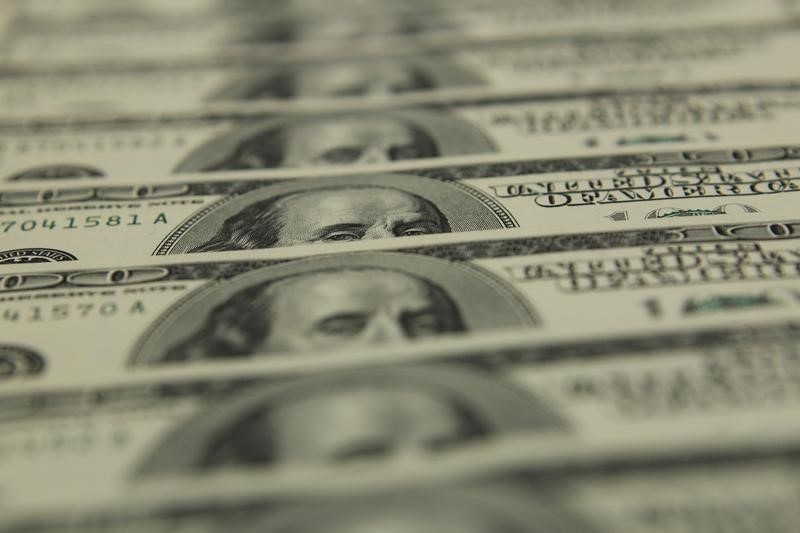Investing.com - The dollar remained broadly lower against other major currencies on Friday, after the release of mixed U.S. data, as a terrorist attack and fresh provocations from Pyongyang dampened market sentiment ahead of the weekend.
In a preliminary report, the University of Michigan said consumer sentiment fell less than expected this month.
Earlier Friday, data showed that U.S. industrial and manufacturing production in unexpectedly fell in August.
In addition, the U.S. Commerce Department said retail sales unexpectedly fell by 0.2% in August.
Meanwhile, the Empire State manufacturing index rose to 24.40 this month from 25.20 in August, compared to expectations for a decline to 19.00.
The dollar came under pressure following news late Thursday that North Korea fired a missile over Japan into the Pacific Ocean. It was the peninsula's second missile launch over Japanese territory in just over two weeks.
Japan reacted by saying that Pyongyang has “no bright future” and called for an emergency meeting of the U.N. security council.
U.S. Secretary of State Rex Tillerson called for the international community to take “new measures” against North Korea, singling out Russia and China as the countries best placed to apply pressure on the regime.
Separately, a bomb exploded on a rush-hour commuter train in London injuring 22 people on Friday, in what was being treated as the fifth terrorism attack in Britain this year.
USD/JPY was up 0.66% at 110.99, while USD/CHF slid 0.28% to trade at 0.9599.
Elsewhere, EUR/USD climbed 0.44% to 1.1971, while GBP/USD rallied 1.41% to a 15-month peak of 1.3585, still supported by the Bank of England's indications on Thursday that interest rates could rise faster than expected amid accelerating inflation.
Gertjan Vlieghe, an external member of the BoE's monetary policy committee, said in a speech on Friday that that interest rates could rise “as early as in the coming months.”
The Australian dollar was steady, with AUD/USD at 0.8003, while NZD/USD climbed 0.86% to 0.7282.
Meanwhile, USD/CAD added 0.18% to trade at 1.2186.
The U.S. dollar index, which measures the greenback’s strength against a trade-weighted basket of six major currencies, was down 0.37% at 91.70 by 10:50 a.m. ET (14:50 GMT).
